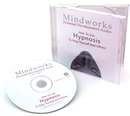
First and foremost, hypnosis is not about mind control or brainwashing as most people mistakenly believe – this is farthest from the truth.
All people change our minds, decisions, actions, and behavior patterns because of external stimuli and factors in the environment. Personal change is the result of experiential dynamics, the understanding of specific data sets or information, presented through valid arguments by someone in authority or someone close to you – emotionally or authoritatively. Everybody – your husband or wife, advertisers, teachers, politicians, lawyers, entertainers, officers of the law, government officials, parents, and ministers – use methods of persuasion and influence in varying degrees. We regularly practice hypnosis in our daily lives.
During hypnosis, you are not powerless, immobilized or unconscious. You know exactly where you are and are aware of what is happening in the area around you. You can do things you normally do – change your sitting position, scratch an itch, sneeze, or cough. During hypnosis, you hear sounds around you – radio music, people talking, a phone ringing. You can respond to any situation that needs your immediate personal attention. You remain oriented as to person, place, and time – there is no out of body experience as stereotyped in the movies. You can even hold a conversation during hypnosis. You can open your eyes and bring yourself out of hypnosis at any time you wish.
Hypnosis is not sleep. However, some of us may get so relaxed during hypnosis we may fall asleep. Even if this were the case, during hypnosis a part of our mind continues to listen to the voice of the therapist. In hypnosis, we can and are able to follow simple instructions.
We all have differing reactions in experiencing hypnosis. Some experience a deep, restful feeling, while another may experience a light, floating sensation. Some people hear every word spoken by the therapist while others do not, allowing their minds to wander. Some experience brilliant and colorful images, the suggestions they hear whereas some do not. Every individual's experience of hypnosis is unique.
Hypnosis cannot and does not cause anyone to do something against their will or something that contradicts their moral or religious values. A therapist is required and bound by a code of ethics to make only those suggestions which support mutually-agreed-upon outcomes. Furthermore, subjects are not receptive to suggestions that go against their morals or values – because receptivity is one of the anchors of success in hypnosis.
Hypnosis is not a solution or magic arrow to solve every problem. It is not a magic potion. Even with hypnosis, it is necessary for an individual to do hard-work planning, research and preparation about the types of changes you want to achieve in your life. You must still take necessary action to get the desired results. Hypnosis is not a cure-all. Although hypnosis is effective in general there are no guarantees that hypnosis will work for you in the same manner it did for another individual. Hypnosis is a tool, and like any other tool it can only function to the optimum based on the capability of the individual using it.
All people change our minds, decisions, actions, and behavior patterns because of external stimuli and factors in the environment. Personal change is the result of experiential dynamics, the understanding of specific data sets or information, presented through valid arguments by someone in authority or someone close to you – emotionally or authoritatively. Everybody – your husband or wife, advertisers, teachers, politicians, lawyers, entertainers, officers of the law, government officials, parents, and ministers – use methods of persuasion and influence in varying degrees. We regularly practice hypnosis in our daily lives.
During hypnosis, you are not powerless, immobilized or unconscious. You know exactly where you are and are aware of what is happening in the area around you. You can do things you normally do – change your sitting position, scratch an itch, sneeze, or cough. During hypnosis, you hear sounds around you – radio music, people talking, a phone ringing. You can respond to any situation that needs your immediate personal attention. You remain oriented as to person, place, and time – there is no out of body experience as stereotyped in the movies. You can even hold a conversation during hypnosis. You can open your eyes and bring yourself out of hypnosis at any time you wish.
Hypnosis is not sleep. However, some of us may get so relaxed during hypnosis we may fall asleep. Even if this were the case, during hypnosis a part of our mind continues to listen to the voice of the therapist. In hypnosis, we can and are able to follow simple instructions.
We all have differing reactions in experiencing hypnosis. Some experience a deep, restful feeling, while another may experience a light, floating sensation. Some people hear every word spoken by the therapist while others do not, allowing their minds to wander. Some experience brilliant and colorful images, the suggestions they hear whereas some do not. Every individual's experience of hypnosis is unique.
Hypnosis cannot and does not cause anyone to do something against their will or something that contradicts their moral or religious values. A therapist is required and bound by a code of ethics to make only those suggestions which support mutually-agreed-upon outcomes. Furthermore, subjects are not receptive to suggestions that go against their morals or values – because receptivity is one of the anchors of success in hypnosis.
Hypnosis is not a solution or magic arrow to solve every problem. It is not a magic potion. Even with hypnosis, it is necessary for an individual to do hard-work planning, research and preparation about the types of changes you want to achieve in your life. You must still take necessary action to get the desired results. Hypnosis is not a cure-all. Although hypnosis is effective in general there are no guarantees that hypnosis will work for you in the same manner it did for another individual. Hypnosis is a tool, and like any other tool it can only function to the optimum based on the capability of the individual using it.
 Thanks for visiting this blog. My name is Felix and I'm a part-time magician who is also interested in NLP and hypnosis. For more infos on hypnosis, please visit my website:
Thanks for visiting this blog. My name is Felix and I'm a part-time magician who is also interested in NLP and hypnosis. For more infos on hypnosis, please visit my website: 

No comments:
Post a Comment